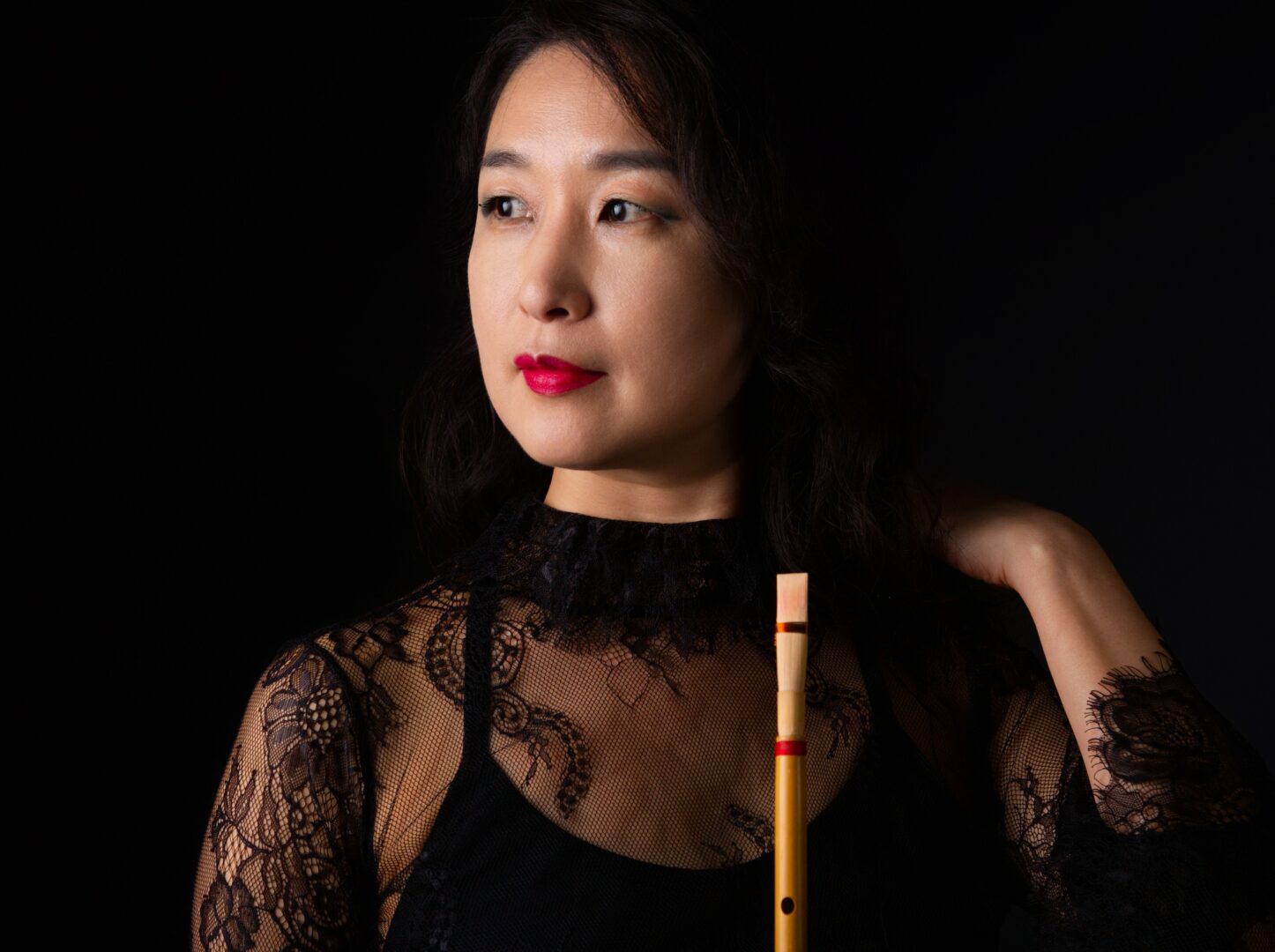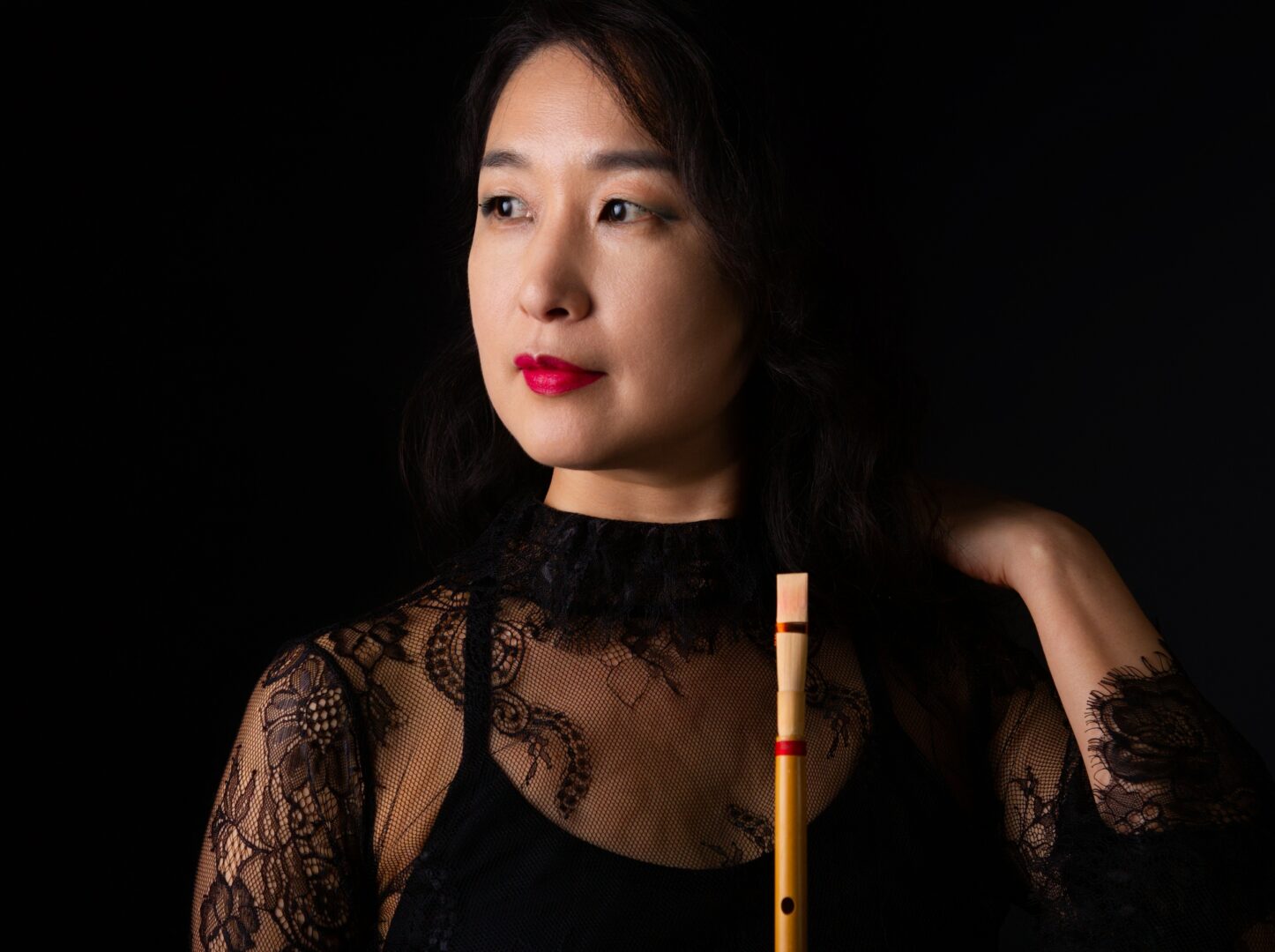We’re excited to introduce you to the always interesting and insightful Gamin Kang. We hope you’ll enjoy our conversation with Gamin below.
Alright, so we’re so thrilled to have Gamin with us today – welcome and maybe we can jump right into it with a question about one of your qualities that we most admire. How did you develop your work ethic? Where do you think you get it from?
I get my work ethic from a blend of my cultural background, my experience as a musician, and the resilience I’ve seen in my family and mentors. Growing up in a Korean household, I witnessed a deep sense of dedication, especially toward education, craft, and shared responsibility. As a traditional musician, I was trained through rigorous practice and discipline, often spending hours refining the smallest gestures. That commitment taught me not only persistence, but also reverence for process and the importance of honoring those who came before me.
But just as deeply, my work ethic is shaped by a belief in the power of community—of bringing people together rather than competing with one another. In Korean traditional music, no sound stands alone; it is always in conversation with others. That principle continues to guide me, whether I am creating, teaching, or supporting others. Through the struggles of immigration, artistic reinvention, and personal healing, I’ve come to value work that strengthens bonds—work rooted in generosity, collaboration, and the quiet strength we draw from one another.

Let’s take a small detour – maybe you can share a bit about yourself before we dive back into some of the other questions we had for you?
I’m a Korean-born musician and interdisciplinary artist rooted in traditional wind instruments like the piri, taepyeongso, and saenghwang. What excites me most about my work is the way sound can carry memory, spirit, and culture across time and place. My practice blends Korean traditional music with improvisation, electronics, and community-based storytelling. I see music not just as performance, but as ritual—an act of remembering, healing, and connecting.
What feels most special to me is the space where tradition meets transformation. I’m passionate about reimagining Korean music in dialogue with contemporary contexts—whether through multimedia storytelling or cross-cultural collaborations. My work is guided by the belief that art should gather people. I’m drawn to projects that invite reflection, deepen cultural understanding, and make room for voices that have been marginalized or forgotten. I want people to feel seen and moved—like they’ve stepped into a shared space of story, sound, and spirit.
If you had to pick three qualities that are most important to develop, which three would you say matter most?
Resilience allowed me to keep going through times of uncertainty—whether I was navigating immigration, loss, artistic shifts, or professional pivots. It’s not just about endurance, but about learning to bend without breaking, to reinvent when needed, and to trust that even slow progress matters.
Deep listening has shaped everything I do—as a traditional musician trained to listen to silence and breath, as a collaborator tuned into nuance and relationship. Listening is an active form of care and respect. For anyone early in their journey: listen more than you speak, and listen not just to others, but also to your inner voice.
Finally, risk-taking within the context of cultural integrity and curiosity has kept me both grounded and inspired. Holding onto the richness of Korean traditions while remaining open to other forms, ideas, and identities has helped me grow as an artist and human being. I encourage others to explore their roots while staying open to the unfamiliar—this duality can become a powerful compass for creative and personal growth.
Advice? Be patient with yourself. Honor where you come from. Surround yourself with people who see your potential, even when you can’t. And remember, the journey isn’t about perfection—it’s about showing up with sincerity, again and again.
Before we go, maybe you can tell us a bit about your parents and what you feel was the most impactful thing they did for you?
The most impactful thing my parents did for me was show me the meaning of quiet sacrifice, unconditional support, and trust without questioning. They never pushed me to follow a specific path, but worked tirelessly behind the scenes to give me the freedom to find my own—always trusting my choices, even when they didn’t fully understand.
My mother’s care showed in the smallest details—making sure I had what I needed for school or music. My father rarely spoke about emotions, but his actions were steady and dependable, always showing up in his own way.
Their love wasn’t always loud, but it was persistent. And that consistency—combined with their unwavering trust—built my sense of security and self-worth. Looking back, I realize how much of my strength, discipline, and sense of responsibility came from their example—not just what they said, but what they modeled through their daily life.
Contact Info:
- Website: https://www.gaminmusic.com
- Instagram: https://www.instagram.com/gamin_firedragon/
- Facebook: https://www.facebook.com/gamin.music/
- Linkedin: https://www.linkedin.com/in/gaminmusic/
- Youtube: https://www.youtube.com/playlist?list=PLqmq3CSCM3csYUFYSo0rb1YqJHdMUm4mG
- Soundcloud: https://soundcloud.com/gamin_koreanmusician
Image Credits
photo by Edi Roque
so if you or someone you know deserves recognition please let us know here.




